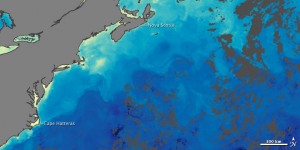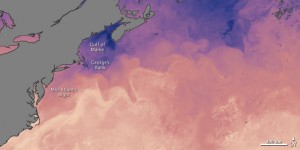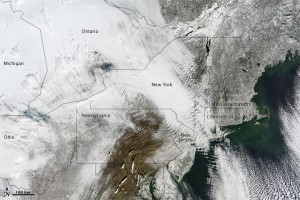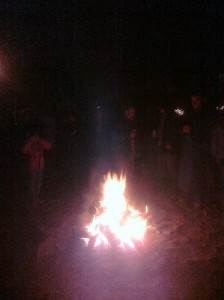We all know the water’s cold in New England, but here’s a nice pair of images that shows why that matters. Here’s the pattern of chlorophyll concentrations off the east coat last August 
And here’s the corresponding ocean temperatures at the same time, the end of last summer. The question is, will warming change this pattern, which has produced an upswell of nutrients and some of the richest fishing grounds on the planet? This area, from the Mid-Atlantic Bight to Georges Bank, is also a major carbon sink, so even if the fish aren’t as plentiful as they once were, there’s a lot to like about this stretch of ocean.






